Emily M. Danforth's Blog, page 6
September 8, 2014
Ms. Bardugo, I loved your first books, but I was terribly disappointed to see you give in to political correctness in Ruin & Rising. You had a great story and then you ruined it with unnecessary lesbianism. Authors don't need to make statements, they just
I was really tempted to ignore this because I don’t believe in giving anon wangs a platform, but the term “unnecessary lesbianism” made me laugh so hard that I caved.
Authors can write good books and make statements. I’m going to make some statements now. (Get ready.)
Queer people and queer relationships aren’t less necessary to narrative than cishet people or relationships. In fact, given the lovely emails and messages I’ve received about Tamar and Nadia (and given the existence of anon wangs like you), I’d say making queer relationships visible in young adult fiction is an excellent—and yes, necessary—idea.
I do agree that story trumps statement or we’d all just write angry pamphlets, but queer people exist both in my world and the world of the Grisha trilogy. I don’t see how including them in my work is making a statement unless that statement is “I won’t willfully ignore or exclude people in order to make a few anon wangs happy.” If that’s the statement I’m making, I’m totally down with it.
Also, I’m going to take this moment to shout out Malinda Lo, Laura Lam, Alex London, David Levithan, Emily Danforth, Emma Trevayne, Sarah Rees Brennan, Maureen Johnson, and Cassandra Clare, and to link to Malinda’s 2013 guide to LGBT in YA. Because why just give attention to bigots when you can talk about awesome books and authors instead?
Ms. Bardugo, I loved your first books, but I was terribly disappointed to see you give in to political correctness in Ruin & Rising. You had a great story and then you ruined it with unnecessary lesbianism. Authors don't need to make statements, they just
I was really tempted to ignore this because I don’t believe in giving anon wangs a platform, but the term “unnecessary lesbianism” made me laugh so hard that I caved.
Authors can write good books and make statements. I’m going to make some statements now. (Get ready.)
Queer people and queer relationships aren’t less necessary to narrative than cishet people or relationships. In fact, given the lovely emails and messages I’ve received about Tamar and Nadia (and given the existence of anon wangs like you), I’d say making queer relationships visible in young adult fiction is an excellent—and yes, necessary—idea.
I do agree that story trumps statement or we’d all just write angry pamphlets, but queer people exist both in my world and the world of the Grisha trilogy. I don’t see how including them in my work is making a statement unless that statement is “I won’t willfully ignore or exclude people in order to make a few anon wangs happy.” If that’s the statement I’m making, I’m totally down with it.
Also, I’m going to take this moment to shout out Malinda Lo, Laura Lam, Alex London, David Levithan, Emily Danforth, Emma Trevayne, Sarah Rees Brennan, Maureen Johnson, and Cassandra Clare, and to link to Malinda’s 2013 guide to LGBT in YA. Because why just give attention to bigots when you can talk about awesome books and authors instead?
September 7, 2014
"It’s a total cliché, but it’s important to be true to yourself. That’s where your power is. That..."
- Rebecca Solnit (via mttbll)
"Suddenly her mom’s silence matched Jackie’s own. “Oh, my God,” she murmured in disbelief. “Are you..."
Suddenly her mom’s silence matched Jackie’s own. “Oh, my God,” she murmured in disbelief. “Are you gay?”
"Yeah," Jackie forced herself to say.
After what felt like an eternity, her mom finally responded. “I don’t know what we could have done for God to have given us a fag as a child,” she said before hanging up.
[…]
She got a call from her older brother. “He said, ‘Mom and Dad don’t want to talk to you, but I’m supposed to tell you what’s going to happen,’” Jackie recalls. “And he’s like, ‘All your cards are going to be shut off, and Mom and Dad want you to take the car and drop it off at this specific location. Your phone’s going to last for this much longer. They don’t want you coming to the house, and you’re not to contact them. You’re not going to get any money from them. Nothing. And if you don’t return the car, they’re going to report it stolen.’ And I’m just bawling. I hung up on him because I couldn’t handle it.” Her brother was so firm, so matter-of-fact, it was as if they already weren’t family.
”- You should read this Rolling Stones piece on Queer kids getting kicked out by their religious parents. And remember it. (via fuckyeahdiomedes)
August 27, 2014
"One thing you notice very early on is that conversation is how we become human. The word “infant”..."
-
Paul Holdengräber, The New York Public Library’s interviewer extraordinaire, on the secrets of great conversation.
Couple with this timeless 1866 guide to the art of conversation.
(via explore-blog)
August 26, 2014
austinkleon:
Photographs of writers at work.
Note how many...
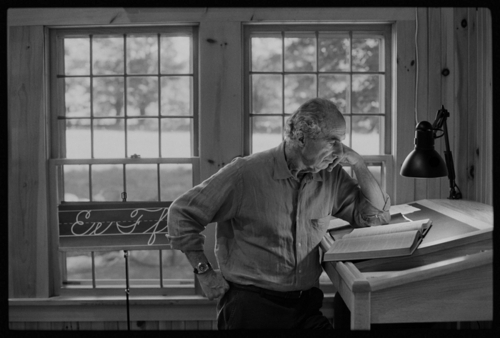






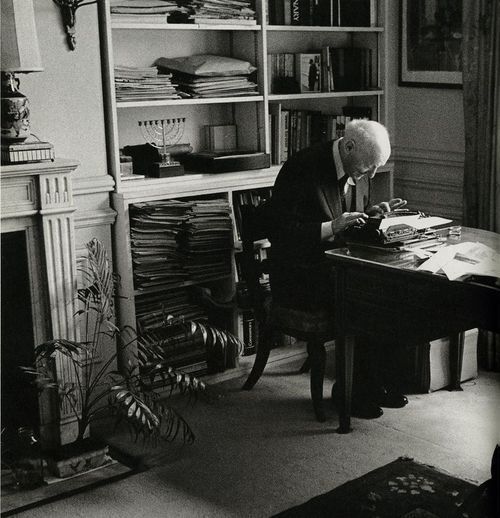
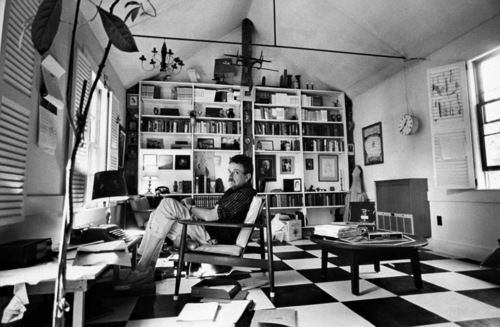
Photographs of writers at work.
Note how many standing desks! See also a great book on the subject, The Writer’s Desk.
Filed under: work spaces
August 17, 2014
"I suspect… that one would not be far wrong in saying that in addition to the people to whom it has..."
- Henry James, “The Art of Fiction” (via mttbll)
August 7, 2014
"When you have symbols, they are operating on different levels, and I don’t even have to know what..."
- Aimee Bender (via mttbll)
August 6, 2014
fer1972:
Underwater Photography by Ed Freeman
August 2, 2014
myimaginarybrooklyn:
magictransistor:
Charles A.A. Dellschau....
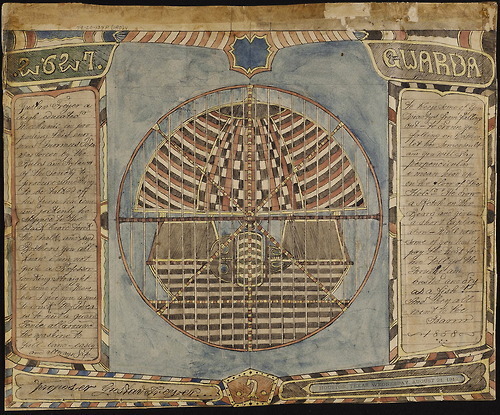
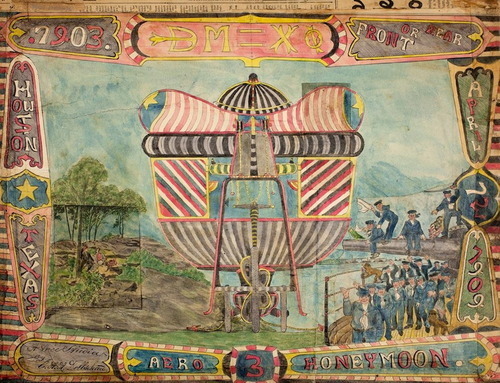
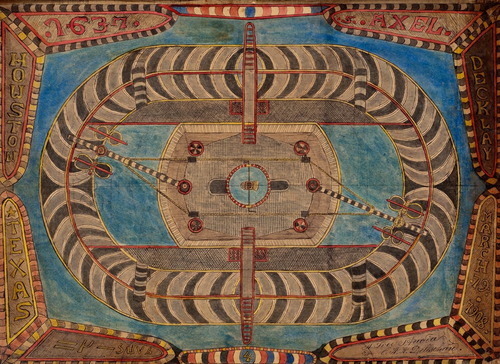
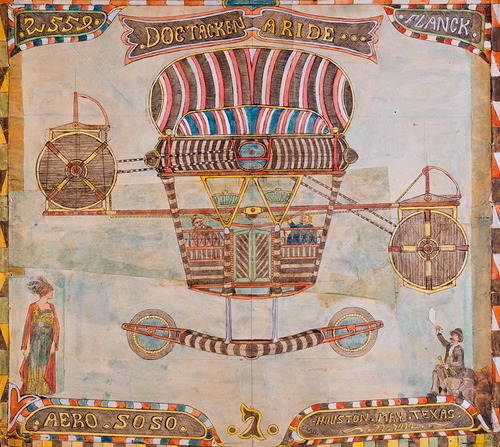
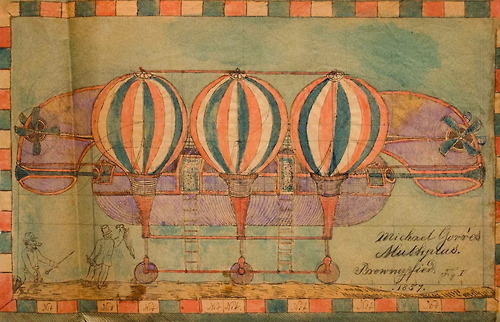
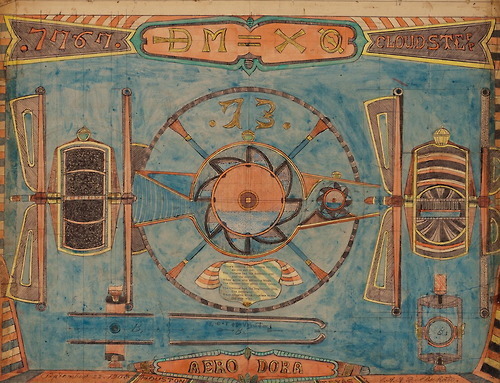
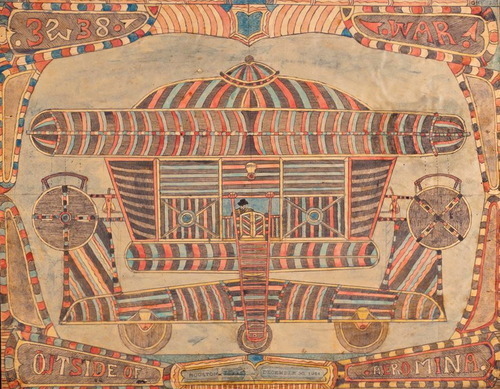

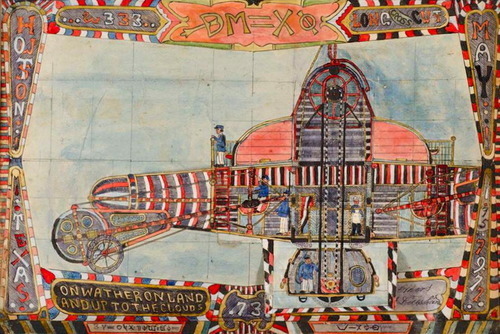
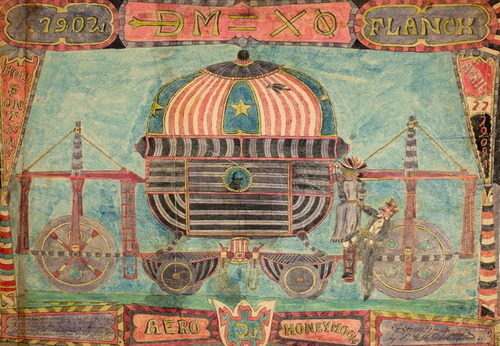
Charles A.A. Dellschau. Aeros. 1899-1922.
In the fall of 1899, Charles Dellschau (1830-1923), a retired butcher living in Houston, embarked on a project that would occupy him for more than twenty years, resulting in twelve large, hand-bound books with more than 2,500 drawings related to airships and the development of flight. Dellschau used watercolour, collage and pencil to create a fleet of craft resembling hot air balloons augmented with fantastical details and text.
His work was in large part a record of the activities of the Sonora Aero Club, of which he was a purported member. Dellschau’s writings describe the club as a secret group of flight enthusiasts who met at Sonora, California in the mid-19th century. One of the members had discovered the formula for an anti-gravity fuel he called “NB Gas.” Their mission was to design and build the first navigable aircraft using the NB Gas for lift and propulsion. Dellschau called these flying machines “Aeros”. According to a coded story hidden throughout the drawings which made up his notebooks, the Sonora Aero Club was a branch of a larger secret society known only as NYMZA. Despite exhaustive research, nothing has been found to substantiate the existence of the group. It is speculated that, like Henry Darger’s “Realms of the Unreal”, the Sonora Aero Club is a fiction by Dellschau.
After the artist’s death in 1923, the books were stored in the attic of the family home in Texas where they remained until being discovered in the aftermath of a fire in the 1960s. Like the eccentric outpourings of Adolf Wölfli, Darger and Achilles Rizzoli, these private works were not created for the art world, but to satisfy a driving internal creative force. Dellschau is now considered one of the earliest self taught visionary artists in America, and his work has been shown alongside the likes of Da Vinci. (S. Romano, Wiki)








